Half a million packets of rashers and 60,000 bacon joints are produced every week at Oakpark Foods in Co Tipperary, with 40% sold into the UK.
When you’re looking at that much product, it’s vital it gets to the supermarket shelf as soon as possible.
“We’ll have a truck coming in at 6pm tonight. That truck will go into Dublin port, it will cross over at 1am to Liverpool and we will have those pallets delivered to the likes of Warrington, Liverpool and Manchester before noon tomorrow. Now that is very efficient transport,” says managing director David Brett of the well-oiled distribution model they have developed to date, where the worst-case scenario is delivery by day three anywhere in the UK.
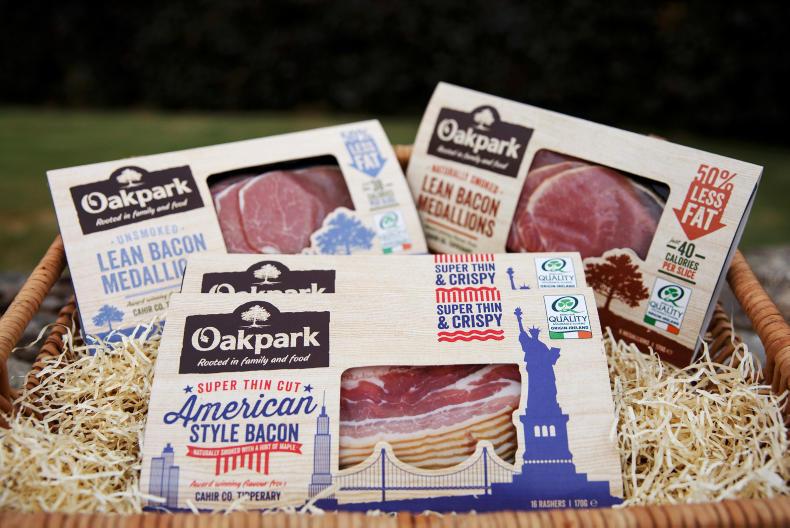
Post-Brexit, however, could be a very different story for the family-owned company (part of the Brett Group), which David runs with his brother John, employing 150 people and with a projected turnover of €40m – Brexit-dependent, that is.
Much of Oakpark Foods’ recent growth has been driven by major deals in the UK, such as a €2m partnership with Aldi, and with other key customers like Lidl, Morrisons, Iceland and Farm Foods, thanks to considerable investment in state-of-the-art facilities in Cahir.
When the Brexit vote passed in 2016, however, “margins overnight were eroded” in the UK due to the movement in sterling. While the Bretts have worked hard to offset that impact, it may be in vain if they simply can’t get products to their customers on time.
“We guarantee a minimum shelf life to our customers in the UK, so if we fall below what we guarantee our customers by a single day, the customer will reject it because we are out of contract,” explains David of the real impact of any delays at port either in Dublin or Liverpool with extra custom checks post-Brexit. To prepare, Oakpark Foods has worked closely with Enterprise Ireland over the last 18 months to examine logistics in the event of a “third country scenario” and have applied to Revenue for AEO (approved economic operator) status, which they hope to have by the end of March.

“In a nutshell, AEO status is like the fast lane at an airport,” explains David; though adds that despite Revenue’s best efforts, the process has been slow due to the volume of applications.
Meanwhile, they have received CSFP (customised freight simplified procedures) from UK Customs, which they hope will mitigate against undue delays there.
“But again, it still comes back to the point that nothing – no matter what AEO or CSFP – nothing will be as quick as what we have today,” stresses David.
Distribution is not the only concern, however. With no clarity on tariffs, if WTO rules are introduced, this will have a huge impact on pricing in the UK.
“In a worst-case scenario, it’s going to be 20% to 25% on a packet of rashers,” says David.
Other challenges have been to source alternative suppliers of packaging and boxes from outside the UK, and to diversify into new markets; most significantly, launching with Albert Heijn supermarkets in Holland just before Christmas.
The realistic best outcome from our point of view at this stage is to agree the transition period and get it through Westminster and that gives them up to December 2020 to negotiate a sensible trade deal between the UK and the EU
“If there is any silver lining in the Brexit process, it’s that we looked outside the box,” says David, but explains that it is not a silver bullet as the Dutch simply don’t consume as much bacon as the British.
With the situation changing daily – indeed hourly – David admits that the uncertainty “doesn’t help you sleep at night when you have 150 people employed” and that in a hard Brexit, the Irish Government will have to support the rural employers who will be most exposed.
“If we have 40% less customers to produce for, we have a problem,” he says.
As for the best outcome he can hope for?
“The realistic best outcome from our point of view at this stage is to agree the transition period and get it through Westminster and that gives them up to December 2020 to negotiate a sensible trade deal between the UK and the EU,” says David.
“From where we are now, that seems a monumental challenge, but would be the best outcome.”
For further information, visit www.oakparkfoods.ie
Next week
Knitwear designer Edel MacBride on business, family and identity post-Brexit at the border.
Half a million packets of rashers and 60,000 bacon joints are produced every week at Oakpark Foods in Co Tipperary, with 40% sold into the UK.
When you’re looking at that much product, it’s vital it gets to the supermarket shelf as soon as possible.
“We’ll have a truck coming in at 6pm tonight. That truck will go into Dublin port, it will cross over at 1am to Liverpool and we will have those pallets delivered to the likes of Warrington, Liverpool and Manchester before noon tomorrow. Now that is very efficient transport,” says managing director David Brett of the well-oiled distribution model they have developed to date, where the worst-case scenario is delivery by day three anywhere in the UK.

Post-Brexit, however, could be a very different story for the family-owned company (part of the Brett Group), which David runs with his brother John, employing 150 people and with a projected turnover of €40m – Brexit-dependent, that is.
Much of Oakpark Foods’ recent growth has been driven by major deals in the UK, such as a €2m partnership with Aldi, and with other key customers like Lidl, Morrisons, Iceland and Farm Foods, thanks to considerable investment in state-of-the-art facilities in Cahir.
When the Brexit vote passed in 2016, however, “margins overnight were eroded” in the UK due to the movement in sterling. While the Bretts have worked hard to offset that impact, it may be in vain if they simply can’t get products to their customers on time.
“We guarantee a minimum shelf life to our customers in the UK, so if we fall below what we guarantee our customers by a single day, the customer will reject it because we are out of contract,” explains David of the real impact of any delays at port either in Dublin or Liverpool with extra custom checks post-Brexit. To prepare, Oakpark Foods has worked closely with Enterprise Ireland over the last 18 months to examine logistics in the event of a “third country scenario” and have applied to Revenue for AEO (approved economic operator) status, which they hope to have by the end of March.

“In a nutshell, AEO status is like the fast lane at an airport,” explains David; though adds that despite Revenue’s best efforts, the process has been slow due to the volume of applications.
Meanwhile, they have received CSFP (customised freight simplified procedures) from UK Customs, which they hope will mitigate against undue delays there.
“But again, it still comes back to the point that nothing – no matter what AEO or CSFP – nothing will be as quick as what we have today,” stresses David.
Distribution is not the only concern, however. With no clarity on tariffs, if WTO rules are introduced, this will have a huge impact on pricing in the UK.
“In a worst-case scenario, it’s going to be 20% to 25% on a packet of rashers,” says David.
Other challenges have been to source alternative suppliers of packaging and boxes from outside the UK, and to diversify into new markets; most significantly, launching with Albert Heijn supermarkets in Holland just before Christmas.
The realistic best outcome from our point of view at this stage is to agree the transition period and get it through Westminster and that gives them up to December 2020 to negotiate a sensible trade deal between the UK and the EU
“If there is any silver lining in the Brexit process, it’s that we looked outside the box,” says David, but explains that it is not a silver bullet as the Dutch simply don’t consume as much bacon as the British.
With the situation changing daily – indeed hourly – David admits that the uncertainty “doesn’t help you sleep at night when you have 150 people employed” and that in a hard Brexit, the Irish Government will have to support the rural employers who will be most exposed.
“If we have 40% less customers to produce for, we have a problem,” he says.
As for the best outcome he can hope for?
“The realistic best outcome from our point of view at this stage is to agree the transition period and get it through Westminster and that gives them up to December 2020 to negotiate a sensible trade deal between the UK and the EU,” says David.
“From where we are now, that seems a monumental challenge, but would be the best outcome.”
For further information, visit www.oakparkfoods.ie
Next week
Knitwear designer Edel MacBride on business, family and identity post-Brexit at the border.






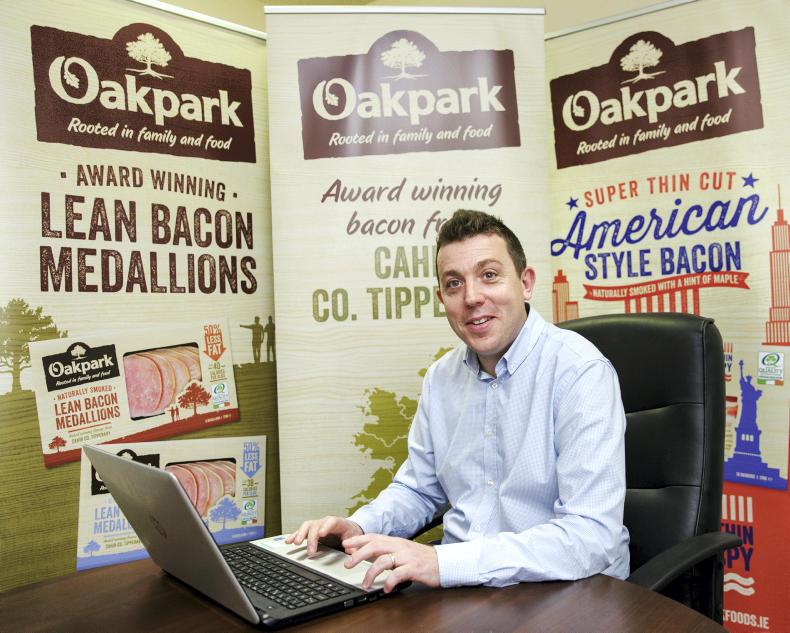
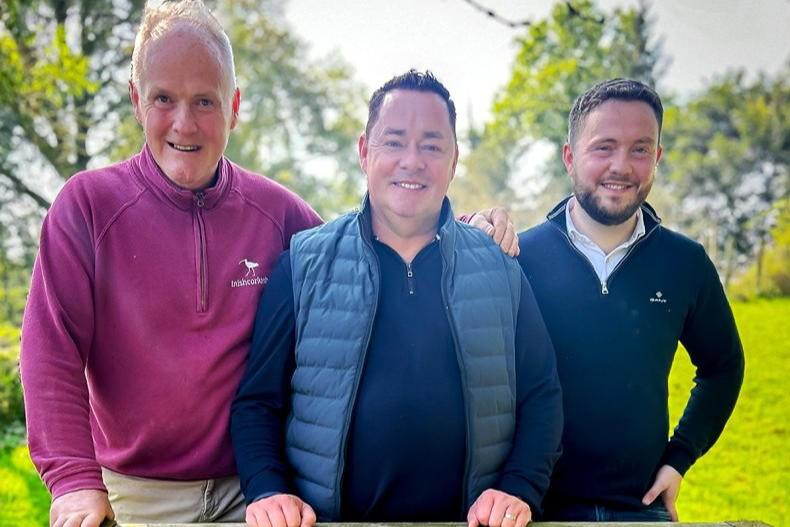

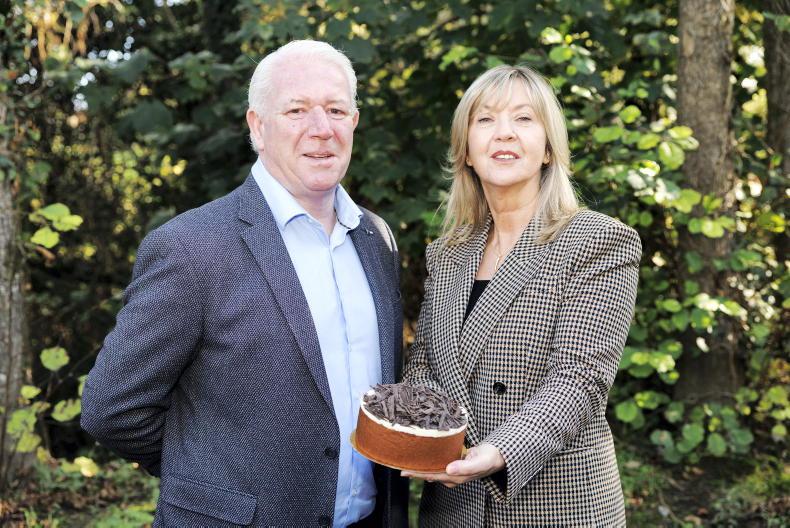
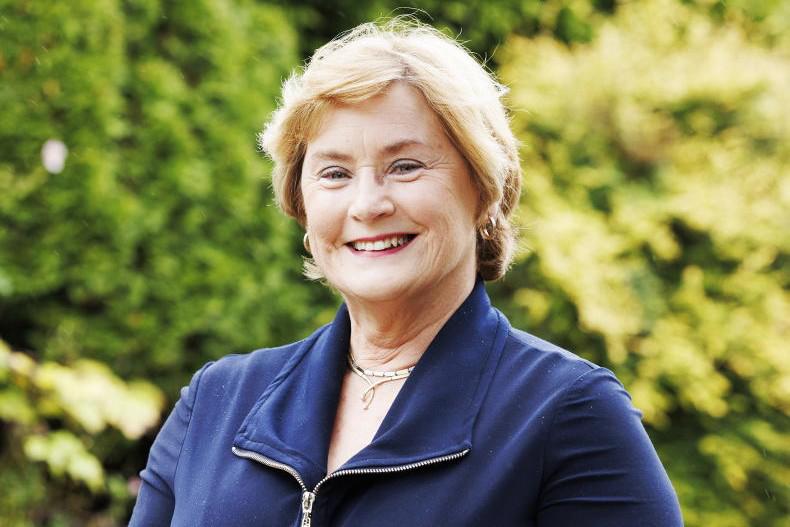
SHARING OPTIONS